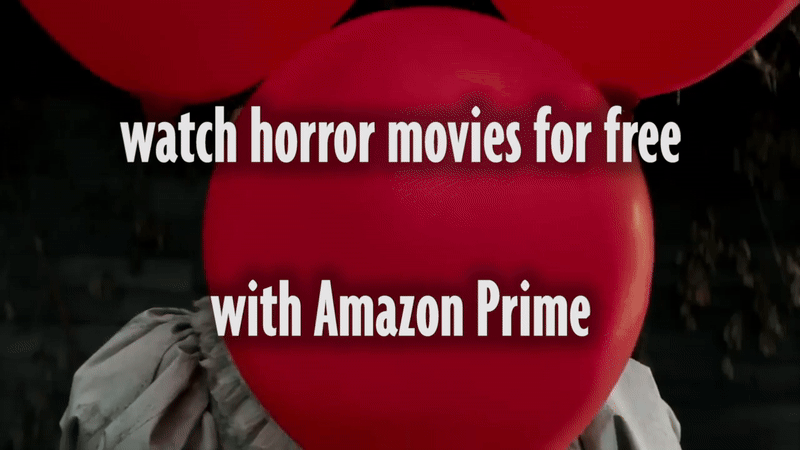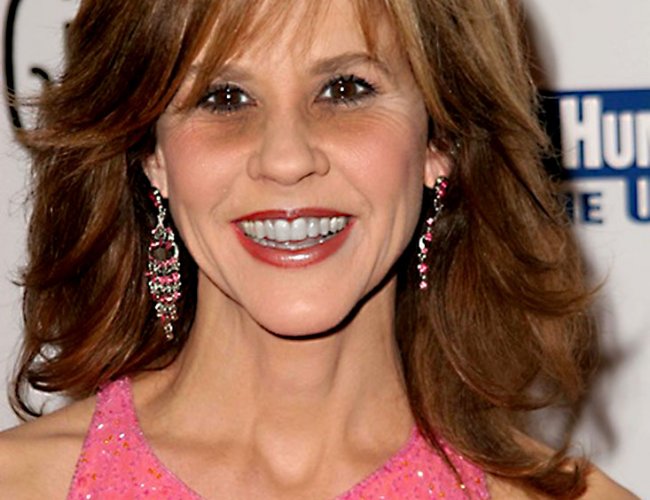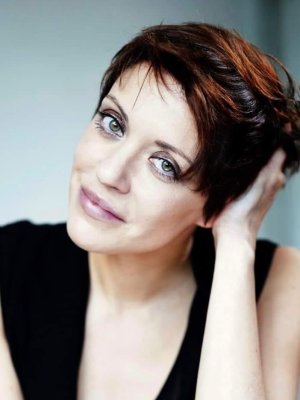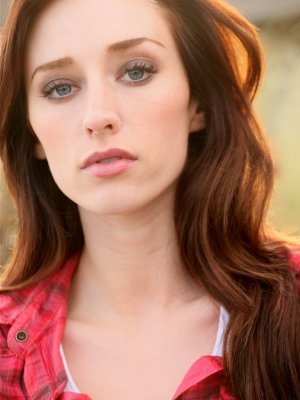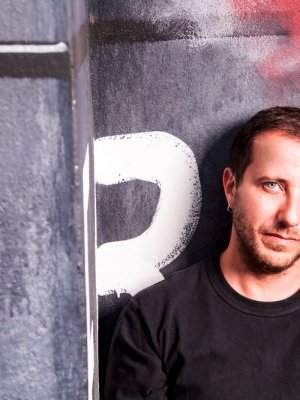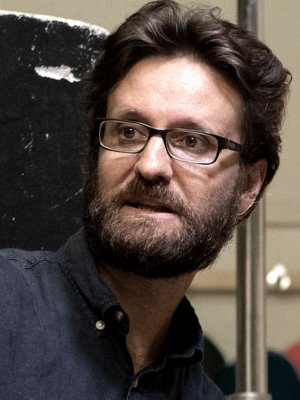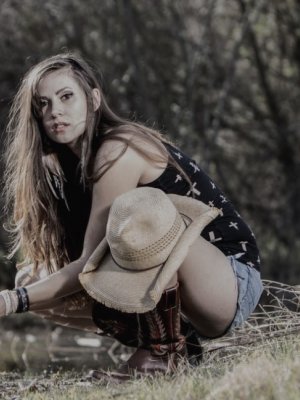Linda Blair interview, she talks about Devil
How old were you when you did The Exorcist?
BLAIR: I was thirteen-years-old.
And looking back on it as an adult now, do you have kids?
BLAIR: No.
When you look back at it thinking about your parents saying 'yes' to letting you do this, this movie that changed your whole life, changed the whole tenor of the culture, other thoughts than what you thought about it when you were a kid or when you were twenty-years-old?
BLAIR: (laughing) I think a few times a day. I'm sorry. I have to entertain myself. An easy way to explain it is I worked in NY since I was five-years-old doing modeling and commercials, and that's a completely different world than in California where I think there's different dreams and aspirations of maybe being a so-called 'star' and so forth. Here you do your work, whether it's theater or commercials. [Commercials are] all happy stuff; Sell ' Sell ' Sell. And Modeling was pretty difficult back then. I did not find the business something that I had an interest in. I wanted to be a veterinarian. And when I was thirteen I basically asked my mother if it was possible for this to end' that I'd had enough of it. And I truly had had enough. And that was right about the time that we got a call for a movie interview.
Now I figured this out recently, pretty much if you ask anybody to be part of a movie, they get a smile on their face. They do! People are like' Movie! Ya know, I don't know. There's something that's magical about it. And we were one of them. And it wasn't that we knew what it was about. We just got excited. (laughs) And so after I went through the initial first meeting with Juliet Taylor, the casting director, I met with Billy Friedkin. He asked my mother and I to read the book. We did. (she emphasizes) Children do not understand the same things as adults.
What was your first reaction when you read the book? Did it scare you?
BLAIR: Well, as I was going to say is, I can't answer for my mother. She was a very private person, and did not discuss a lot of things. I know she did with (the director,) Billy Friedkin. For me reading the book, I had the same questions that everyone else had. How does she jump up and down off the bed? How does her head spin around? How does she throw up?
The religious questions? ' I didn't have a clue. I grew up Protestant in Connecticut at the Saugatuck Congregational Church. We didn't talk about the devil. That's Catholicism. And so, that was my safety net. And I always say, it's probably a good thing they didn't hire a Catholic child, who may have heard about the devil, the things that were in the closet. And no one wanted to discuss them. So for me, it was a really big safety net. We didn't talk about it on the set. My mother and I didn't talk about it. Billy Friedkin and I didn't talk about it. It was a closet subject. But it was the best thing that happened because I had no idea what I was going.
Do you recall the first rehearsals? Did you have a lot of rehearsal time prior to filming?
BLAIR: Three months. Wouldn't that be dreamy now? You don't get an hour rehearsal it seems anymore. [The rehearsals] were good. It was a good thing, which is why the scenes with the actors became 'like butter' for me. [Bill Friedkin] needed to rehearse ME. He needed to work out what and how and why. And how would he, while we were filming, know what buttons to push for each one of us.
I know that privately he worked with Ellen, privately he worked with Jason. He knew they had their own connections as actor and director. And that's something that I still think is very private to our business, that isn't for the public's attention. I mean a lot of it has been given onto this, Um, Ellen would sometimes say that she didn't have such a comfortable relationship with him. But at the time, it was a given as to what their relationship was. My relationship with Billy, that was a given.
And people need to understand; I may have been very innocent. Didn't understand the devil. Didn't understand any of that. But there was' you know' you can only push a child so far. You have laws; number one. And number two; I had been doing this so long, I could say now that I don't want to do something. But after a certain while, they knew when they had pushed their luck with me, and that it was time to, you know, maybe back off.
Was there a continual piece of direction he was giving you to get that reaction out of you?
BLAIR: Every day was different, because if you think about it, the demon was always different. Sometimes it's just very quiet and watchful, which is just frightening when the demon was quiet. And then when it was loud and obnoxious, of course (laughing), it just took everybody back.
It was a very very interesting film to have worked on. I have to say, of all the projects I've worked on, I've never worked with another director like Billy Friedkin. I think he's a genius. For me, that was the right director to have for the movie.
At the time it was so shocking, the language.
BLAIR: (very somber) It's still shocking.
But, you know, Who's Afraid of Virginia Wolf and Rosemary's Baby had broken the thing six years earlier, but the language in that was never?
BLAIR: And you never saw the demon. I mean, I totally want to see what's in the baby carriage. (laughing) And Billy let you see it.
And of course we had Mercedes McCambridge doing the voice of the demon, but you had to say all of that.
BLAIR: Thank you. Thank you, you finally got it.
Was it liberating? Were you getting a kick to be able to say these words?
BLAIR: No. I didn't understand. I knew they were bad words. But I didn't' if those came out' those words were not said around my house, nor were they said in public back then. Billy got a kick out of shocking the world. I'm unfortunately the one who had to say it, and so there for many many years, I'm the one who has had (laughing) to answer to it.
Some doubles were used for certain parts of scenes?
BLAIR: May I clarify that? Warner Brothers had to hire [a stunt double] and no one thought a child could do this. Billy Friedkin came to me before we were filming and said 'if you do not do all of this film, the film will be a joke.'
It's why they stripped the makeup down to the bare minimum, a piece on my chin, piece across my mouth that disfigured my mouth. You have scars here. Take away my eyebrows. It was my real hair. Shampoo was put in it that dried.
Eileen Dietz was hired to be the stunt double. Everybody knows that. Linda Hagen did the spider walk, which is not in the original and is in the new one. Again, that was very difficult as well. Eileen was my stand-in and my stunt double. But Billy said if I left her do the stuff, it's a joke, people will laugh at this movie. And that can't be. You need to work with me here.
So while we were filming, Eileen did many things, but for the performances, I believe you probably could have asked Bill [Blatty], and I'm sorry about this, but I think you can see, I believe, 17 seconds that Eileen Dietz was in the film. And they are two of the vomit scenes. I had really had enough of the vomit. I mean I not going to lie. We kept at that equipment for so long. I was warm, stinky, smelly, thick, gooey. It was the one thing that just was like pushing me over the edge.
Maybe it's just my personal standards. I wouldn't allow my thirteen-year-old daughter to do things like the crucifix scene.
BLAIR: And you know what, I wouldn't let my child do it. I mean, I can't disagree with people. I can only tell you that I didn't understand. I never knew what that was about. I thought it was very odd that I had a cross and that I was sticking it in a box saying terrible language. But I have to say that I did not understand.
You got a horse out of doing the movie. Did you buy your own horse?
BLAIR: Actually, no. I got my first pony when I was ten. Remember, I worked since I was a child.
Was the horse reference in the movie something you added, or was that already in the screenplay?
BLAIR: Oh, they did. They did add it. That was because I did love horses.
I think after a year and a half of filming, they tried to figure a way to say thank-you. And that was how they said thank you. I guess if you look at things, it's kind of, you know, I don't have points in movies, and I think they maybe knew a couple of things and they thought this would be a nice thing. They knew they had something on their hands. And I wasn't a problem to work with. I did my part. So that is, I believe, why they said we'd like to make the gift of a horse to you. The sad part is that, I did not know this until the other day, but, I named the horse Best Director because I believed it came from Billy Friedkin. And I was told that it came from Billy Friedkin and Warner Brothers, and I'm sad to know that Bill Blatty was a part of that, but no one told me. He sort of made a comment the other day, 'You going to name your next horse Best Writer?' I said, 'Oh Bill, don't tell me. I'd never known.' We've learned a lot over the last couple of years with spending some time together.
How do you think the notoriety affected your growing up?
BLAIR: Of course that changed my entire life. I don't think there are very many people that will have the experience of sitting in this room, doing a job, and the next thing you know you've been on every television camera around the world, and people are' they're frightened of you. They don't know what to make of you. I think people seemed to believe when they saw me that they might be becoming possessed. That is the look in their eyes. They were frightened of me. And no matter what I said or did, it didn't change. And the fact that it was a job in film, it just never came across.
And I really' I wish that things had been different back then, but people couldn't see that it was entertainment. I can only say to people, what was written about me back then was very difficult. I was not in a mental institute. And if you're going to talk about this thing to a fifteen-year-old, you're going to cause them grief. You know, like look what they did to MaCauley Culkin. The poor child. I know because I've been there. But I could say after living my life, truth will always win out. And no one can take my character away from me anymore.
And I have done, I hope to say I've done things to help make a difference while I'm on this earth. Are animal issues most important to me? Absolutely. I have an affinity with them, but I also care about children and the elderly and always say that the rest of everybody else can fend for themselves because we're in a age where we can. And we're all able to do so.
You don't feel like you were traumatized by this? You're not bitter...
BLAIR: You can't be. While you're in the moment of anything that's confusing in your life, you're in the moment, and you have to figure it out. You can go up or down. And I just kept working on the higher road, and trying. I got very involved with medication. I was lucky. I had some really good people that were just here there and wherever who would come into my life that I felt would answer questions. I mean, I had some very powerful questions myself for what this earth was all about.
I think that if I'd not made the movie, I might be a veterinarian in Connecticut. I would probably be married with some children. That's probably the way it would be. But because of the film, I don't have a normal life by somebody else's standards. But my standards, I know no different. If I had children, I would be very selfish. I wouldn't be out doing things. I'd probably be just making sure they had a good life. And that's the truth. But by not having kids, it makes me much more freer to travel the world and talk about different things that I feel are important. Will I settle down sometime? Yes, I'll find someplace that I want to be, but I will always be out there doing the work as long as I'm able. And it is very draining. If there's a lot of people, you're always fighting up against different things.
One of the reason I don't have kids is because I think that people would have been very unfair to them. Think of it. This is 28 years later. You're still asking me questions about my life and how I dealt with it. What would the world have done to my children? And I think that's kind of a shame.
28 years later, how do you regard the themes of the film? Grappling with it?
BLAIR: The only thing I can say is [Bill Blatty] always thought it had much more of a spiritual overtone than most people thought. We all feel that the audience had missed something in the movie. That they got very caught up with the fear, and the horror.
Blatty is the first to tell you he didn't write a horror film, although I think he smirked a few times while writing (she then does a funny impression of Blatty typing away with an evil glint in his eye.) I know him. I now know. (She amusingly imitates him typing and in a sing-song voice says) "How far can I drive the people?" But he didn't intend to do that. He intended to write something very different. He had his own reasons for writing it.
And this was the cut that he needed to do to show people that there's spirituality to it. God wins. That's the one thing that people keep forgetting. God wins and always will. And that's if we have our say about it. And I hope that people will get a different opinion of it this time. I hope they will get that because it will maybe shed some light on things.
What do you think of these new changes? Anything in particular that you like about the new additions?
BLAIR: I haven't seen the film.
(Note: The interview was conducted in New York, and Linda was scheduled to see the new version of The Exorcist for the first time later that evening at the premiere at the Boston Film Festival.)
I know the film and I remember quite a bit. I remember talking to Blatty about the film, and Friedkin, so I know pretty much what they've added. And again, like I say, this is the version that Blatty wanted. This was Billy Friedkin's first cut. And it's Blatty's favorite cut. I hope it answers questions people have had for so long.
Just for the record, you're still performing?
BLAIR: I did a series for teenagers and kids called S-Club 7 in LA for Fox Family Channel. And I did it because the children, everybody's children, they don't know who I am. They know I'm the-lady-in-the-movie-they-can't-see. And I was actually offended by that because I think I've done a lot of wonderful work.
If you know me, I don't live in this dismal world. I mean, I like to have fun. My friends are comedians. I worked very hard, I'm committed the last six months to starting my company the alternet.com, learning all about computers and websites and so forth. Putting all of my work into that. I did S-Club 7 because it was light. It's a teenage band out of England. They're number one on Fox Family and on the BBC. It's international. I needed kids to walk up and say 'You're that lady from S-Club 7,' which is what they do now. And I like having little kids look at me. It's fun. They make these little faces.
I work more than people realize. It doesn't mean you always see the project. Look at how many stations we have. I did a couple films in Australia. I like the movies. One was for Warner's Village Road Show. It was the first movie they made, but their company was still restructuring, and it never got out. It's barely in video release.
Born Innocent was pretty controversial at the time...
BLAIR: Yes. It was very controversial. [It was] the one about the teenage runaways and the fact that there's child abuse at home, people don't always know why, and the kids run away. The court thought that I should be punished and sent to the girl's home. And that's where she was actually raped by the girls that were kind of hard core. And that's the point, I wasn't. The character was not. It was just abused at home and trying to get away from that abuse. And that's the first time that teenage abuse had been brought up, and then teenage alcoholism. Yeah so people thought I was (she scoffs and rolls her eyes) really a troubled teen. I was possessed. I was drunk. I was a runaway. I mean you know (laughs).
And then you sort of mocked that image...
BLAIR: Fatal Bond and Repossessed. [This was] very important. Bob Logan was the one who wrote and directed [Reposessed]. And he asked about doing it and I said, 'Oh Bob, you know I just' I just want to get away.' But he said, 'Kid, you have no where to laugh.'
I had no way to have a sense of humor about The Exorcist. I didn't know how. And this enabled me. So see as I said, I've had people appear in my life that have helped me. I had more fun. I approached it thinking how would Jack Nicholson, (she does a devilish voice to exemplify) 'How would he do it?' So that's really what I did was I created this Gremlin character. So now people come up and they say 'Oh The Exorcist!'.. and I'm like 'Did you see Repossessed?' They say either no or yes or whatever, and I say look at this, have a laugh, and then go back and look at a masterpiece (The Exorcist).
It's a masterpiece. For me to be sitting here 28 years later. This is an honor. I know you may not think so, but it really is. How many movies in our lifetime? This is an honor. And as all my friends said, 'Linda, enjoy this time.' It wasn't enjoyable the first time because they're were too many questions. But I think I've lived a solid life. You can look at who I've been, good, bad or indifferent. But who I am, and the alternet.com, which is my company. It's alternative health, medicine, animals and the issues that I deal with the animals. And we do our first video streaming on October 30th.
How do you think a new audience in 2000 that's never seen The Exorcist' how do you think they'll look at this piece differently than when it first came out?
BLAIR: The only thing I can say is that people requested 'when is it going to be on the big screen?' People want it on the big screen and they want to see the footage. I think it's going to do very well. I think it will please people, and the fact that they added the new sound. Oh my God. If they thought they were scared before, I think they're going to be really freaked out. I'm serious.
I heard that when they were doing the sound previews in LA, that the theater lights were on, and they were showing a reel, and they said the sound was so around them, they felt there were rats around. They said it was all over you. And that's incredible. We had incredible technology back then, but we have even better now.
He also could not have made that movie. If they made the film in today's context, people would laugh. They know it's all done with video. Marcel Vercoutere who did the special effects, the best there was. Dick Smith and make-up, the master of masters. Who has been so great to all the other kids that come and ask questions. Billy Friedkin I think is a genius filmmaker. That was his project. That was his thing. And Bill Blatty wrote the great novel.
Ellen Burstyn gave one of the most amazing performances. Without her performance, you would never have believed or felt anything for me.
And for me, I did what I was told.

